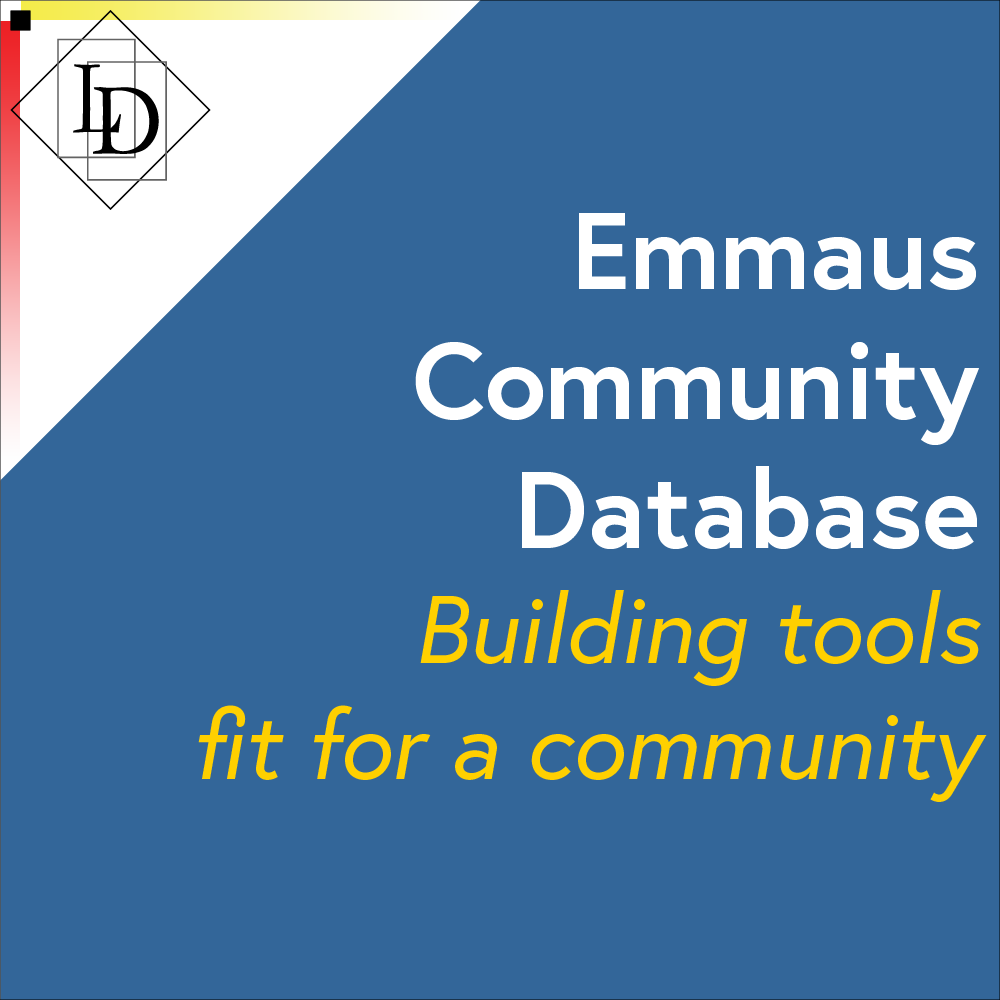
The Emmaus Online Community Database
Community groups and volunteer organisations the world over generate and need to maintain mountains of data in easy and efficient ways. Several years ago we were approached by a group called Emmaus to create a solution that does just that.
Emmaus is a global movement of Christians overseen by the Upper Room. Over one million people have attended an Emmaus Ministries experience. Each of the programs within the Emmaus Ministry will take people on a spiritual journey including prayer, fellowship, communion and engaging talks on God's Grace. Empowering leaders to be the hands and feet of Christ. Emmaus Ministries encourages Christians to actively serve and share God's love in their local communities, partnering with local churches to develop Christian Discipleship.
An Emmaus retreat weekend is information intensive. There are registration forms, team lists, participant lists, volunteer support lists, a prayer vigil list and so on. The local Emmaus community database person gathers this information and collates it together to produce a spreadsheet that often looks like this:
People use the tools available to them to solve the problem, and to their credit, there is an impressive amount of information recorded. However, there are limitations to using Excel:
- It is searchable in a way, but there is no way to correlate information. E.g. how many times did member X serve on team? Who hasn’t served on team? Who is suitable and wasn’t called? Who was called but responded with no?
- Excel is flexible, but it is too easy to delete data accidentally.
- There is no error checking – it is possible to enter nonsense data and there is no way to verify it.
- It is stored as a file on a person’s computer. If I send a copy to another member, there are now two versions: which one is the current version?
- Team list, pilgrim list, prayer vigil are all related pieces of information, but with no central way to share.
The biggest problem of all, is this:
Around 2015 Logical Developments began development of a web-based system using Omnis Studio for the application logic. The Emmaus online community database is in use by Emmaus communities around Australia. Built to facilitate restricted, multi-user access, it provides a membership database which allows the community to centralise and secure their data. Roles can be created, so that users only see the information that they’re permitted to see. It allows them to store information on the annual retreats and regular gatherings so they can monitor the health of the community. Among other features, it has newsletter functions built in to allow the community to easily manage contact lists.
What this means for communities is that the data is more accurate; there is no duplication of information, or operating with outdated information anymore – data is always up-to-date. The information is secured centrally, and access can be better controlled. It also means that volunteers are more likely to get involved because the processes are easier overall.
If your organisation operates from a number of locations, and data needs to be centralised but also accessed remotely, then it makes sense to consider a web-based system like this. Creating software from the ground up to solve unique problems is what we do best at Logical Developments. Take a look at our other work, and if you have a problem in need of solving, we’d love to hear from you.
We’re also preparing to start a newsletter. If you’d like to hear from us directly, jump over to our contact page and join!